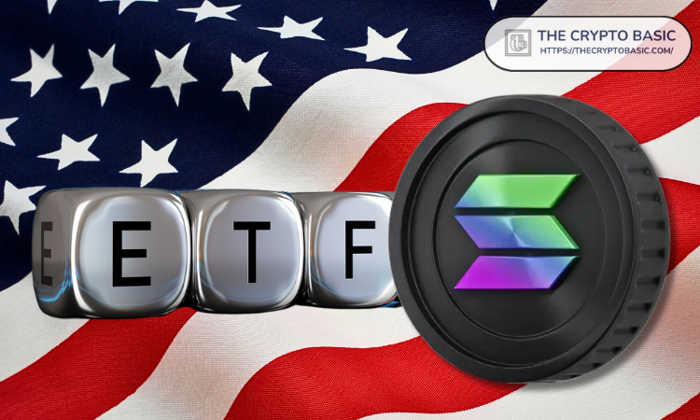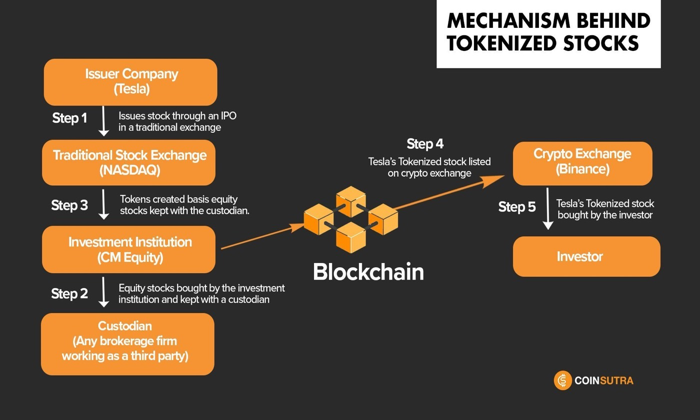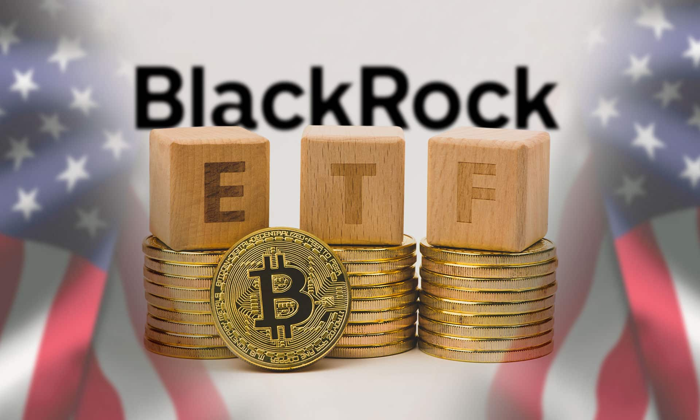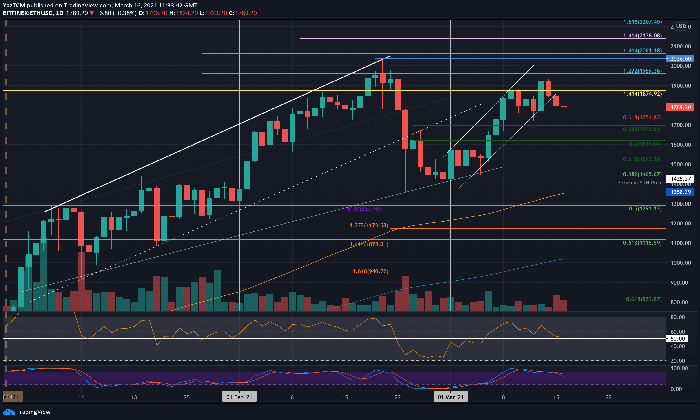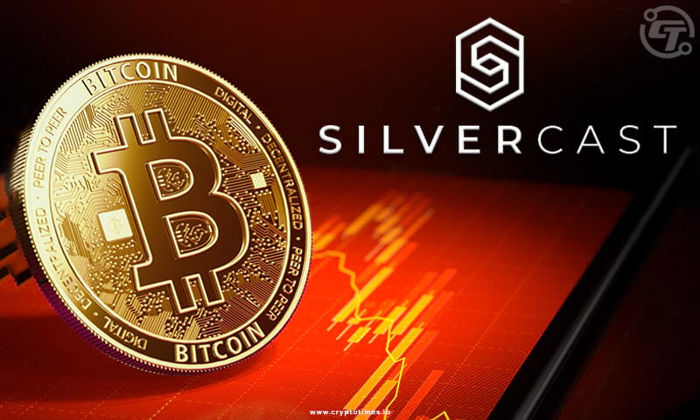World Liberty Financial (WLFI) is at the center of a heated debate surrounding potential conflicts of interest involving the Trump family and its ties to this innovative crypto platform. As lawmakers in Congress push for investigations, the platform’s co-founder, Zach Witkoff, defends WLFI against what he terms “fundamentally flawed” oversight efforts. With the recent launch of its stablecoin, the USD1, concerns escalate regarding the implications of Trump’s involvement and the financial conflicts of interest that may arise. The situation has drawn attention to the intersection of crypto technology and regulatory scrutiny, particularly as WLFI prepares to host events for its top token holders. As discussions about the GENIUS Act unfold, the future of financial oversight in the cryptocurrency landscape hangs in the balance.
World Liberty Financial, a prominent player in the cryptocurrency landscape, is embroiled in a controversy linked to the Trump family and potential financial entanglements. This crypto platform, which recently launched its USD1 stablecoin, faces scrutiny from Congress, with lawmakers investigating the ramifications of the Trump family’s involvement in the crypto sector. The ongoing discourse highlights significant issues surrounding conflicts of interest and establishes a pivotal moment for how digital currencies are regulated. As Congressional inquiries intensify, the implications for innovation and oversight within this emerging market become increasingly critical. With events slated for top WLFI token holders, all eyes are on how these developments will unfold in the legislative arena.
World Liberty Financial: Tackling Congressional Oversight
In a robust response to the call for Congressional oversight, World Liberty Financial (WLFI) stands firm against what it calls fundamentally flawed premises. The crypto platform, which has deep ties to the Trump family, asserts that U.S. lawmakers are mischaracterizing its operations and innovations. The founders, including Zach Witkoff, state that rather than engaging in debates about oversight, they are focused on fostering innovation in the rapidly evolving crypto landscape. This position emphasizes WLFI’s commitment to shaping the future of financial technology without being hindered by perceived governmental overreach.
The company’s response is significant given the context of escalating scrutiny surrounding cryptocurrencies and their implications for national security. With the growing intersection of politics and financial technology, WLFI’s stance highlights critical debates about whether oversight is necessary or if it stifles growth. As the GENIUS Act continues to move through Congress, WLFI remains a focal point of discussion regarding the ethics of political figures engaging in the crypto market, raising essential questions about accountability and transparency.
Assessing Financial Conflicts of Interest in Cryptocurrency
As concerns escalate over the potential financial conflicts of interest surrounding the Trump family and World Liberty Financial (WLFI), U.S. lawmakers are scrutinizing the ties that bind them. The introduction of the GENIUS Act, which seeks to recognize stablecoins as formal payment instruments, reflects a legislative move meant to control potential influences exerted by political figures in the cryptocurrency realm. Senator Blumenthal, in his communications with WLFI, emphasizes that the USD1 stablecoin launched by the platform introduces significant concerns, as it may facilitate personal and political gains for the Trump family, thus blurring lines between public service and private benefit.
These investigations underscore the need for clarity around conflicts of interest as cryptocurrencies gain traction in mainstream finance. The debate circles around how regulations can be designed to protect the financial integrity of such platforms while ensuring that powerful individuals do not manipulate regulatory frameworks to secure advantages for their own family enterprises, such as WLFI. The discourse continues to involve discussions about stablecoins and their potential impacts, necessitating policymakers to devise safeguards that promote innovation without sacrificing ethical standards.
Stablecoins and Their Role in Financial Innovation
Stablecoins, like the USD1 launched by World Liberty Financial, represent a transformative aspect of the cryptocurrency landscape. Often lauded for their ability to reduce volatility common in traditional cryptocurrencies, stablecoins have sparked discussions on their role as reliable payment systems. WLFI’s stablecoin aims to connect investors directly with significant ventures in the crypto ecosystem, navigating past the complicated regulatory environment imposed by state and federal laws. This innovation could offer new pathways for investment while promoting the platform’s goal of integrating with the broader financial system.
However, the advent of stablecoins raises pressing questions regarding regulatory compliance and consumer protection. As lawmakers, including Senator Blumenthal, call for investigations into the implications of these digital assets linked to prominent political figures like the Trump family, the necessity for balanced regulation has never been greater. Innovation must walk hand in hand with accountability, ensuring that stablecoins do not inadvertently facilitate financial misconduct while also nurturing an environment ripe for technological progression.
The Political Landscape Impacting Crypto Platforms
The intertwining of politics and cryptocurrency has created a contentious landscape for platforms like World Liberty Financial. With the Trump family’s notable involvement in WLFI, there exists heightened scrutiny from lawmakers who are wary of potential conflicts of interest. The ongoing Congressional investigations signal a growing concern that the crypto platform could serve as a vessel for political influence rather than a genuine financial innovation. This scrutiny is not just a passing phase; it reflects a shift towards greater regulatory oversight that may redefine how crypto operates in the political sphere.
As discussions around the GENIUS Act unfold, the political dimensions surrounding WLFI will likely shape the regulatory environment for crypto platforms. Lawmakers are actively examining how to establish structures that prevent misuse while also encouraging valid innovation. This balance between oversight and enabling growth will be paramount in ensuring the cryptocurrency ecosystem develops sustainably, free from undue political influence, and capable of attracting both investors and consumers alike.
Innovation vs. Oversight in Cryptocurrency Regulation
World Liberty Financial posits that the advancement of cryptocurrency should not be hindered by excessive oversight. Zach Witkoff, co-founder of WLFI, argues that the call for investigations distracts from the innovative strides being made in the financial sector. In his view, regulatory bodies need to recognize the importance of supporting innovation rather than perceiving it solely through the lens of potential risks and vices. The refusal to acknowledge the value of innovation could stifle growth when cryptocurrencies could provide viable solutions for large-scale economic issues.
With the emergence of regulations such as the GENIUS Act, the cryptocurrency community is at a crossroads. Lawmakers must find a way to foster a nurturing environment for innovations such as stablecoins, while also addressing legitimate concerns surrounding conflicts of interest linked to prominent political figures. The resolution to this dilemma will define the future trajectory of cryptocurrency regulation in the U.S., determining whether it becomes a facilitator of growth or an impediment to technological advancement.
The Trump Family’s Influence on World Liberty Financial
The involvement of the Trump family with World Liberty Financial has drawn critical attention in light of ongoing Congressional investigations. Concerns about the president’s possible conflicts of interest reign supreme, especially as discussions gather momentum regarding the implications of his family’s investments in cryptocurrency. As the political landscape evolves, questions arise about how this influence could impact the regulatory environment designed to oversee such platforms. The close familial connection creates a unique atmosphere of scrutiny around WLFI and its operations.
In particular, the launch of WLFI’s USD1 stablecoin has attracted attention regarding its potential for conflicts of interest that could undermine the integrity of U.S. financial systems. As the Trump Administration navigates convoluted regulatory waters, many analysts emphasize the importance of transparency and ethical governance. This scrutiny could shape the future of crypto regulations, ensuring there are safeguards in place to prevent misuse while promoting genuine technological advancements that serve the public’s interest.
Regulatory Challenges Facing Cryptocurrency Platforms
World Liberty Financial, like many other crypto platforms, faces significant regulatory challenges amid lawmakers’ increasing scrutiny. With the advent of stablecoins such as WLFI’s USD1, regulators are tasked with determining how to establish frameworks that uphold market integrity while fostering innovation. The complexities arise when politicians, such as Senator Blumenthal, raise concerns about financial entanglements that could pose conflicts of interest, especially when connected to influential figures. This dichotomy creates a pressing need for clarity in rules governing cryptocurrencies.
As discussions around the GENIUS Act progress, it remains vital for the cryptocurrency sector to advocate for balanced regulations that promote enterprise without compromising ethical standards. The road ahead will likely be filled with calls for accountability from lawmakers keen on ensuring that stablecoins contribute positively to the financial ecosystem. For WLFI, embracing regulatory frameworks that ensure transparency could not only shield it from future disputes but also foster consumer confidence in an uncertain market.
Implications of the GENIUS Act for World Liberty Financial
As the GENIUS Act moves forward in Congress, its implications for World Liberty Financial and similar crypto platforms could be profound. The proposed legislation to officially recognize stablecoins as legitimate payment instruments stands to legitimize many ongoing operations within the industry while ensuring that oversight mechanisms are firmly in place. For WLFI, adapting its business model to align with the statutory regulations will be crucial. The push from U.S. lawmakers, including Senator Blumenthal, for transparency regarding financial connections to influential political families serves as a call for enhanced accountability.
The fate of the GENIUS Act will likely set a precedent for how financial entities with political affiliations operate. It will be essential for WLFI’s leadership to engage with lawmakers to clarify how they intend to navigate the challenges posed by both innovation and compliance. Future legislation may determine how companies can use stablecoin transactions to bolster their sustainability and credibility in the market, thus directly impacting how World Liberty Financial can leverage its position in the evolving landscape of cryptocurrency.
Navigating the Future of Cryptocurrency and Politics
The intersection of cryptocurrency and politics has become increasingly complex, as illustrated by the response of World Liberty Financial to congressional oversight. Navigating this landscape will necessitate a nuanced understanding of both regulatory demands and the fast-paced nature of financial technology. As WLFI positions itself in this arena, it must balance its ambitions of innovation with the weight of political scrutiny. This navigation will play a critical role in shaping how cryptocurrency platforms are perceived and regulated in the future.
The ability to foster a collaborative relationship with lawmakers will be a key factor for WLFI’s success. With concerns around the Trump family’s involvement and broader implications for financial ethics, the crypto platform is at a crucial juncture. How WLFI engages with these evolving political dialogues will not only impact its operational future but also set a standard for how other cryptocurrency enterprises might interact with government entities moving forward.
Frequently Asked Questions
What is World Liberty Financial and its connection to the Trump family?
World Liberty Financial (WLFI) is a crypto platform co-founded by Zach Witkoff, which is backed by the Trump family. It aims to innovate within the cryptocurrency space, notably launching a stablecoin.
Why are U.S. lawmakers investigating World Liberty Financial?
U.S. lawmakers, particularly Senator Richard Blumenthal, are investigating World Liberty Financial due to concerns regarding potential conflicts of interest related to President Trump’s connections with the crypto platform and its operations.
What are the implications of the GENIUS Act for World Liberty Financial?
The GENIUS Act aims to recognize stablecoins as legitimate payment instruments and could impact World Liberty Financial by addressing concerns about President Trump’s potential financial benefits from legislation regarding stablecoins.
How does World Liberty Financial respond to concerns about financial conflicts of interest?
World Liberty Financial, through its legal representatives, has dismissed the congressional oversight as ‘fundamentally flawed’ and emphasizes their focus on innovation rather than regulatory concerns.
What is the role of stablecoins in World Liberty Financial’s business model?
Stablecoins play a crucial role in World Liberty Financial’s business model, with the platform recently launching a USD1 stablecoin that is being utilized for significant investments in the crypto market.
What security risks are associated with World Liberty Financial’s links to the Trump administration?
Lawmakers have raised concerns that World Liberty Financial’s financial ties to the Trump family could pose national security risks and potential violations of the foreign emoluments clause.
What is WLFI’s stance on regulatory oversight?
World Liberty Financial’s co-founder, Zach Witkoff, stated that the company opposes the misuse of regulatory authority but believes that oversight should not stifle lawful innovation in the crypto sector.
| Key Point | Details |
|---|---|
| Dismissal of Oversight Concerns | World Liberty Financial (WLFI) lawyers claim Congress’s call for investigation is “fundamentally flawed.” |
| Rejection of Allegations | CEO Zach Witkoff did not address specific allegations but emphasized that WLFI is focused on growth rather than regulatory oversight. |
| Legislative Background | Senator Blumenthal and others push for investigations related to WLFI and the president’s interests, particularly regarding the GENIUS Act. |
| Concerns Over Stablecoin | Concerns center on the USD1 stablecoin launched by WLFI and its implications for Trump’s potential conflicts of interest. |
| Investment Links | Abu Dhabi investment firm plans to use WLFI’s stablecoin for a large investment in Binance, adding to concerns about financial entanglements. |
| National Security Risks | Blumenthal raises concerns that WLFI’s connection to the President poses national security risks under the foreign emoluments clause. |
| Future Legislation Uncertainty | It is still unclear if the GENIUS Act will include language to safeguard against potential personal benefits to Trump from stablecoins. |
Summary
World Liberty Financial finds itself at the center of a complex web of political scrutiny regarding potential conflicts of interest related to the president. The firm’s leaders categorically reject calls for congressional oversight, labeling them as flawed, while also emphasizing their commitment to innovation in the crypto space. As discussions around legislative measures like the GENIUS Act continue, the intersection of cryptocurrency, political aspirations, and the implications for national safety remains a pressing topic. By focusing on its growth amidst scrutiny, World Liberty Financial highlights its dedication to progressing within the evolving landscape of cryptocurrency.
World Liberty Financial (WLFI) is at the center of an escalating controversy that highlights the intersection of crypto platforms and political accountability. This Donald Trump family-backed initiative has recently faced scrutiny from U.S. lawmakers, who have raised flags about potential financial conflicts of interest arising from the president’s connection with the platform. In a robust response, WLFI’s co-founder Zach Witkoff dismissed these congressional oversight efforts, labeling them as fundamentally flawed. As the crypto platform progresses, it simultaneously confronts questions regarding its USD1 stablecoin and the implications of its launch for broader regulatory policies. With the GENIUS Act under consideration, lawmakers are deliberating on how to address both innovation in cryptocurrency and the ethical considerations tied to political affiliations.
In recent discussions surrounding financial regulatory frameworks, the crypto firm World Liberty Financial (WLFI) has emerged as a focal point of debate. The creative technology platform, backed by the Trump family, is currently navigating potential investigations prompted by allegations of undue influence and financial entanglements. Critics, particularly from the Democratic side of Congress, are voicing concerns about transparency and the risks posed by the firm’s stablecoin, which adds a layer of complexity to the ongoing discourse. Senator Richard Blumenthal has been vocal about the imperative for legislative action to ensure accountability within emerging financial technologies linked to political figures. As conversations about regulatory clarity and innovation continue, the implications for WLFI and similar entities are significant.





